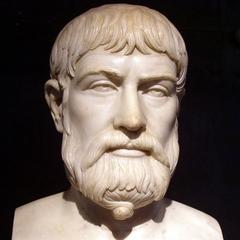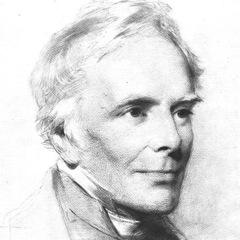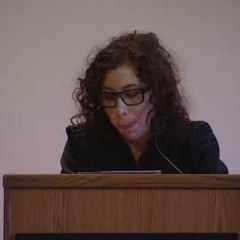Geoffrey Chaucer Quotes - Page 6
"The Canterbury Tales (The Wife of Bath's Tale)". Book by Geoffrey Chaucer, 1387.
Troilus and Criseyde bk. 4, l. 434 (ca. 1385).
Geoffrey Chaucer (1879). “The Poetical Works of Geoffrey Chaucer: To which are Appended Poems Attributed to Chaucer”
Robert Anderson, Geoffrey Chaucer, Henry Howard Earl of Surrey, Sir Thomas Wyatt, Thomas Sackville Earl of Dorset (1795). “The Works of the British Poets. With Prefaces”
'The Canterbury Tales' 'The General Prologue' l. 500
The Canterbury Tales "The Knight's Tale" l. 1999 (ca. 1387)
Whoso will pray, he must fast and be clean, And fat his soul, and make his body lean.
Geoffrey Chaucer (2012). “The Canterbury Tales”, p.273, The Floating Press
Bernard O'Donoghue, Geoffrey Chaucer (2015). “Reading Chaucer's Poems: A Guided Selection”, p.61, Faber & Faber
Geoffrey Chaucer, Thomas Tyrwhitt (1843). “The Poetical Works of Geoffrey Chaucer: With an Essay on His Language and Versification, and an Introductory Discourse; Together with Notes and a Glossary”, p.299
Geoffrey Chaucer (1967). “Publications”
Geoffrey Chaucer (1966). “The Canterbury Tales”
Geoffrey Chaucer (1977). “The Portable Chaucer: Revised Edition”, p.481, Penguin
'The Canterbury Tales' 'The General Prologue' l. 293
Geoffrey Chaucer (1870). “The Canterbury Tales”, p.185
"Canterbury Tales". Book by Geoffrey Chaucer, The Reeve's Tale, line 4,155, 1387.
Geoffrey Chaucer (1959). “The Canterbury Tales”
The Canterbury Tales "The Nun's Priest's Tale" l. 3052 (ca. 1387)
Geoffrey Chaucer, Theodore Alois William BUCKLEY, Edward Henry Corbould, Thomas Tyrwhitt (1853). “The Canterbury Tales ... From the Text and with the Notes and Glossary of Thomas Tyrwhitt, Condensed and Arranged Under the Text. A New Edition. [Edited by Thomas A. W. Buckley.] Illustrated by Edward Corbould”, p.298
"Troilus and Criseyde". Poem by Geoffrey Chaucer, 1380s.
Geoffrey Chaucer, Thomas Tyrwhitt (1868). “The Poetical Works of Geoffrey Chaucer”, p.309







